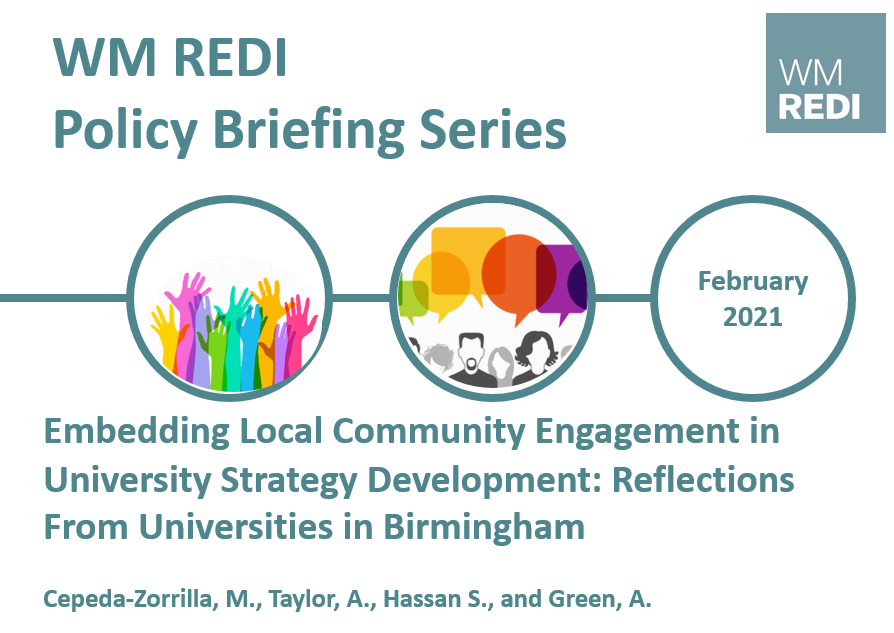In this policy briefing Dr Magda Cepeda Zorrilla, Dr Abigail Taylor, Dr Sara Hassan, and Professor Anne Green report on the findings from a research project that analyses university strategies within Birmingham.
This briefing builds on work undertaken by WM REDI in conjunction with the Centre for Local Economic Strategies (CLES) as part of a project commissioned by Birmingham City Council (BCC). Given the focus of WM REDI on better understanding and supporting the role of universities and how community engagement can help them with their mission, we undertook a desk-review of the strategies of the five Universities in Birmingham (Aston University, Birmingham City University, Newman University, The University of Birmingham and University College Birmingham) and explored the extent to which engagement is communicated and conducted as part of strategy development.
Traditionally, universities are more inclined to be interested in economic impact, for example, in relation to innovation, entrepreneurship, business cooperation, labour market relevance. Community Engagement in Higher Education Institutions (HEIs) means a shift from this traditional role of the universities, however, to date, there is a lack of knowledge about the ways in which community engagement is implemented in (HEIs) (Correa-Bernardo, et al. 2012). Our research highlights that the gap in assessing the impact of community engagement is a missed opportunity for universities to realise their potential socially, culturally and economically and the Brief concludes with a series of policy recommendations.
The key findings from the policy briefing are:
- This brief makes a case for policymakers to understand the relevance of promoting community engagement in strategy and policy development.
- The findings suggest the need for engagement with new audiences and groups and for the continued development of participative models of interpretation and governance. There is also a need to strengthen liaison with policymakers to develop indicators to monitor and assess engagement outcomes.
- The authors emphasise the importance of improving transparency regarding how strategies are developed and improving how engagement is measured.
- This brief considers the mechanisms that can be used to foster community participation in strategy and policy development and the value which this can bring.
This blog was written by Dr Magda Cepeda Zorrilla, City-REDI / WM REDI, University of Birmingham.
Disclaimer:
The views expressed in this analysis post are those of the authors and not necessarily those of City-REDI or the University of Birmingham

